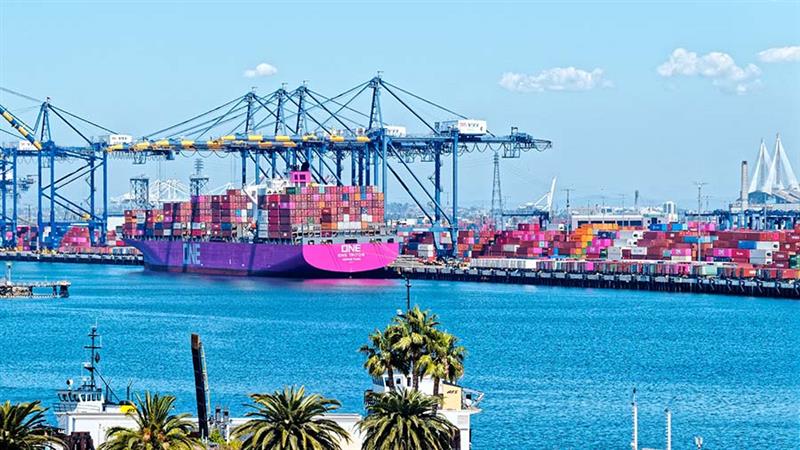According to the Basic Law of Hong Kong, the taxation system of mainland China does not apply to Hong Kong, which essentially means that the Special Administration Region (SAR) enjoys an independent taxation system. Since the city only imposes three direct taxes, Hong Kong has one of the most straightforward tax systems in the world. There are also generous allowances and deductions to reduce the burden on taxpayers.
Hong Kong operates on a territorial tax basis, meaning that only income generated from within Hong Kong is subject to taxation. This unique structure provides substantial relief for businesses engaged in cross-border activities, as any income sourced outside of Hong Kong is exempt from tax, irrespective of the residency status of the taxpayer.
Key features of Hong Kong’s taxation system
Hong Kong’s tax system has some distinctive features compared to other jurisdictions' taxation systems.
Taxes are only levied on a territorial basis, unlike most countries that apply both residential and territorial jurisdiction in determining tax liability. Only income arising in or derived from Hong Kong is taxable, whereas worldwide income is not taxable, irrespective of the residence status of the taxpayers. That said, some foreign-sourced passive income could be regarded as arising or derived from Hong Kong under the Foreign-Sourced Income Exemption (FSIE) regime, though tax exemption on profits tax can apply if certain conditions are met.
Further, there is no comprehensive system of income taxation in Hong Kong. Instead, a taxpayer is liable for tax on three different types of income. If an income fails to fall within any of the three specific tax provisions, then it shall not be subject to tax.
The three direct taxes are:
- Profits tax : Companies in Hong Kong are taxed on profits derived from business activities conducted within the territory. For 2024, the profits tax rate stands at 16.5 percent for corporations, while unincorporated businesses, such as partnerships and sole proprietorships, are taxed at a lower rate of 15 percent. Importantly, offshore income, dividends, and capital gains remain exempt from taxation.
- Property tax: Hong Kong property owners are required to pay property tax at a standard rate of 15 percent on rental income generated from their properties. Property tax is levied on the net assessable value, which is the rental income after deductions for rates paid and 20 percent of rental income for repairs and maintenance.
- Salaries tax: Individuals working in Hong Kong are subject to a progressive salaries tax that ranges from 2 percent to 17percent in 2024, depending on income level. There are allowances and deductions available, such as personal allowances, mortgage interest deductions, and education expenses for dependents to further reduce tax liability.
Apart from direct taxes, certain indirect taxes, such as stamp duty and betting duty, are also collected.
Further, Hong Kong has no turnover taxes, making it a favorable location for profit shifting and re-invoicing activities.
Here are the taxes that Hong Kong does not impose:
- No sales tax or value-added tax (VAT);
- No withholding tax on dividends and interest;
- No capital gains tax;
- No tax on dividends; and,
- No estate tax.
Administration of tax and fiscal year in Hong Kong
The Inland Revenue Department charges Hong Kong’s tax administration. The tax assessment year usually runs from April 1 to March 31 each year. A company may also choose its fiscal year at its own discretion.
Hong Kong tax rates for 2024: Summary of tax rates
|
Type |
|
Standard Rate |
Variations |
|
Profits Tax |
16.5%, 15% |
Maybe tiered depending on income |
|
|
Salaries Tax |
2%-17% |
Tiered depending on income |
|
|
Withholding Tax |
0 - 16.5% |
0 - 16.5% |
|
|
Property Tax |
15% |
None |
|
|
Stamp Duty |
Transfer of stock |
0.26% |
None |
|
|
Transfer of residential property |
15% |
Certain transactions are exempt |
|
|
Transfer of non-residential property |
HK$ 100 - 4.25% |
HK$ 100 - 4.25% |
|
|
Lease of immovable property |
0.25% - 1% |
0.25% - 1% |
|
|
Buyers stamp duty |
15% |
None |
|
Customs and Excise Duty |
|
0% |
Exception: Certain goods must pay duties on import |
|
Hotel Accommodation Tax (HAT) |
|
0% |
|
|
Capital Gains Tax |
|
0% |
|
|
Dividend Tax |
|
0% |
|
|
Value Added Tax (VAT) |
|
0% |
|
|
Estate Duty |
|
0% |
|
Profits tax
Corporations are taxed at a standard rate of 16.5 percent, while unincorporated businesses are taxed at a standard rate of 15 percent.
The SAR has implemented a two-tiered profits tax regime, which lowers the tax rate for the first HK$2 million (US$255,782) of assessable profits, which will be taxed at 8.25 percent. The remaining profits will continue to be taxed at the 16.5 percent tax rate.
For unincorporated businesses, the first HK$2 million (US$255,782) of profits earned will be taxed at 7.5 percent. The remaining profits will be taxed at the existing 15 percent tax rate.
Any party, including corporations, partnerships, trustees, and organizations involved in any trade, profession, or business in Hong Kong, is subject to tax on all profits arising in or derived from Hong Kong (excluding profits arising from the sale of capital assets).
Profits tax is levied based on assessable profits, which is determined by excluding deductions and tax-exempt incomes. The tax reduction, subject to a maximum, further reduces it.
Principles of taxation
Since Hong Kong adopts a territorial source principle of taxation, only profits derived from a trade, profession, or business carried on in Hong Kong are taxable here. Profits sourced elsewhere are not subject to Hong Kong profits tax. The principle itself is very clear, but its application in particular cases can be contentious.
Over the years, the following principles have emerged from authoritative court decisions:
- Matter of fact – the question of the locality of profits is a complex, practical matter of fact. No universal rule can apply to every scenario. Whether profits arise in or are derived from Hong Kong depends on the nature of the profits and the transactions that give rise to such profits.
- The operations test identifies the operations that generated the profits in question and determines where they were carried out. The guiding principle is to examine what the taxpayer has done to earn the profits and where they were earned. The source of profits must be attributed to the operations of the taxpayer responsible for generating them rather than those of other entities within the taxpayer’s group.
- Antecedent or incidental activities – the relevant operations do not comprise the whole of the taxpayer’s activities. The focus is on establishing the geographical location of the taxpayer’s profit-producing transactions as distinct from activities antecedent or incidental to those transactions.
- A place where decision is made – the place where the day-to-day investment and business decisions take place is only one factor that must be considered in determining the source of profits. It is not usually the deciding factor.
- Gross profits from transactions – the distinction between Hong Kong and offshore profits refers to the gross profits arising from individual transactions.
- Business presence overseas – while a company may have operations outside of Hong Kong that generate profits, the lack of such a presence does not automatically mean that all profits arise in or derive from Hong Kong. However, if the company’s primary operations are in Hong Kong and there is no presence overseas, any profits earned will likely be subject to profits tax in Hong Kong.
Property tax
The property tax standard rate is 15 percent of net assessable value (NAV).
The property tax is one of the most significant taxes people living in Hong Kong must pay.
Property tax is levied on income arising from the letting of immovable property, which is payable by the owner(s) at the standard rate of the year of assessment on “net assessable value” (NAV). Under the provisions of the Inland Revenue Ordinance, each and every joint owner or owner in common is responsible for reporting rental income on tax returns and paying property tax as if they are the sole owner.
Withholding taxes
Withholding tax rates range from 0-16.5 percent, depending on the payment category.
Non-resident enterprises and individuals that derive income from a Hong Kong source for services rendered in Hong Kong are charged withholding tax.
When a Hong Kong entity makes payments to a non-resident enterprise or individual for services rendered in Hong Kong, part of the amount must be withheld and paid to Hong Kong’s Inland Revenue Department. The percentage of the amount withheld is the withholding tax.
Salaries tax
Income tax rates range from two percent to a maximum of 17 percent after deductions and allowances or 15 percent on net income after deductions.
All individuals earning income from or derived from Hong Kong from an office, employment, or pension are subject to salaries tax in Hong Kong. Tax payable is calculated at a progressive rate on the “net chargeable income” or a standard rate on the “net income” (before deduction of the allowances), depending on which is lower. The tax reduction, subject to a maximum, further reduces it.
|
Tax Rates |
||
|
Progressive rates (Year of Assessment 2018/19 onwards) |
||
|
Net chargeable income (HK$) |
Rate |
Tax (HK$) |
|
On the first 50,000 |
2% |
1000 |
|
On the next 50,000 |
6% |
3,000 |
|
On the next 50,000 |
10% |
5,000 |
|
On the next 50,000 |
14% |
7,000 |
|
Remainder |
17% |
|
|
Standard rate of tax (year of assessment 2014/15 onwards) |
||
|
15% |
||
Transfer Pricing
Transfer pricing is charged when transferring goods, services, and intangible property between a Hong Kong company and a related entity.
The Inland Revenue (Amendment) (No. 6) Ordinance 2018 (“the Amendment Ordinance”) establishes a comprehensive transfer pricing regime in Hong Kong. It codifies the transfer pricing principles, implements certain measures under the Base Erosion and Profit Shifting (BEPS) package, and aligns the provisions in the Inland Revenue Ordinance (Cap. 112) with international tax requirements.
Hong Kong transfer pricing legislation is important to prevent tax avoidance in cross-border transactions.
AEOI reporting
Under the Automatic Exchange of Financial Account Information (AEOI) standard, financial institutions must identify financial accounts held by tax residents of reportable jurisdictions or passive non-financial entities whose controlling persons are tax residents of reportable jurisdictions in accordance with due diligence procedures.
Required information on these accounts has to be collected and furnished to the Department. Such information will be exchanged on an annual basis.
Hong Kong has expanded the list of reportable jurisdictions to cover 100 reportable jurisdictions for the more effective implementation of the arrangement relating to AEOI.
Audit and compliance
Statutory reports are required annually for companies incorporated in Hong Kong. The reports must contain audited financial statements for the current year, with corresponding amounts for the preceding year, including a balance sheet, profit and loss account, and a cash flow statement.
Audited financial statements must be prepared and signed off by a certified public accountant on behalf of a business or non-profit organization to provide financial accountability and accuracy to stakeholders and people with a vested interest in the company.
Accounting standards
As one of the two SARs of China, Hong Kong enjoys the right to develop its own accounting standards rather than applying the relative standards of mainland China. The Hong Kong Institute of Certified Public Accountants (HKICPA) is the only organization authorized by law to promulgate financial reporting and auditing standards for professional accountants in Hong Kong.
The accounting standards of Hong Kong are known as the Hong Kong Financial Reporting Standards (HKFRS), which have been fully converged with the International Financial Reporting Standards (IFRS). According to the HKICPA, HKFRS is designed to apply to general-purpose financial statements and other financial reporting of all profit-oriented entities.
Further, the HKFRS is designed to be applicable to the overall financial statements and other financial reporting of profit-oriented entities. It encompasses all reporting standards, accounting standards (HKAS), and interpretations issued by the HKICPA.
FAQ: Hong Kong Tax Rates 2024
How do the 2024 Hong Kong tax rates compare to previous years?
The standard rate has been consistent at 15 percent for several years. The introduction of the two-tier system in 2024 is a new development, with a higher rate of 16 percent for income exceeding HKD 5 million.
What are the progressive salaries tax rates in 2024?
The progressive salaries tax rates for 2024 are as follows:
- On the first HKD 50,000: 2 percent
- On the next HKD 50,000: 6 percent
- On the next HKD 50,000: 10 percent
- On the next HKD 50,000: 14 percent
- On the remainder: 17 percent































